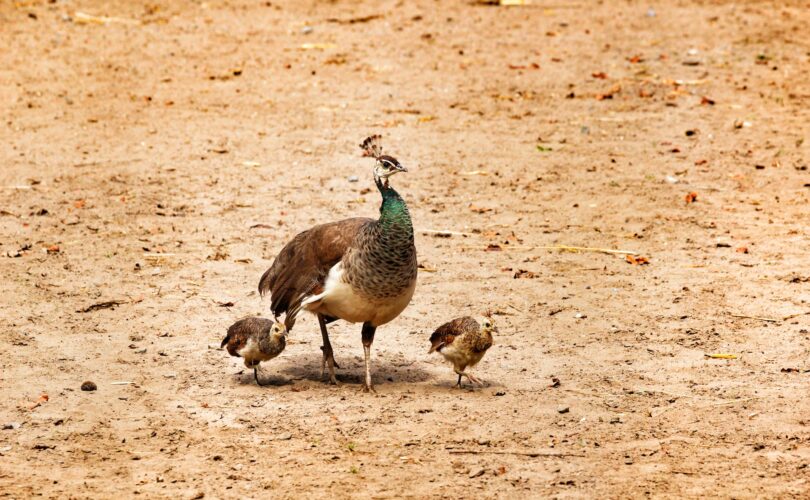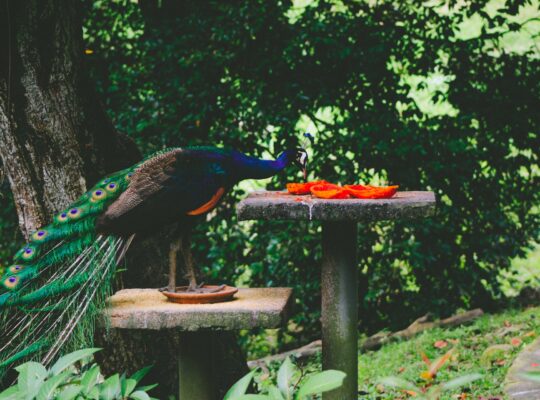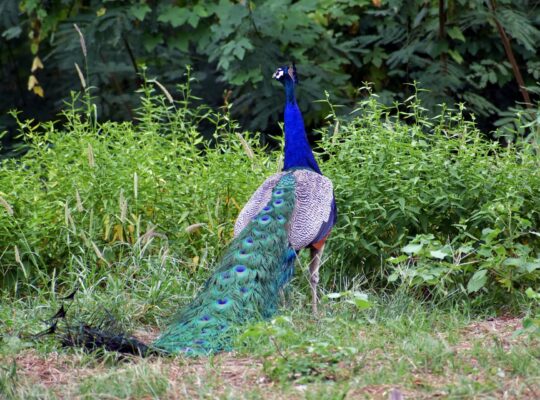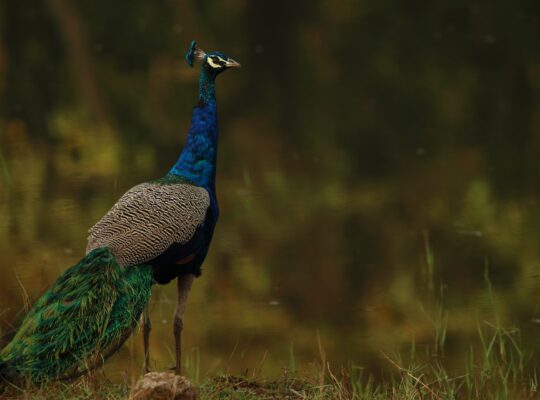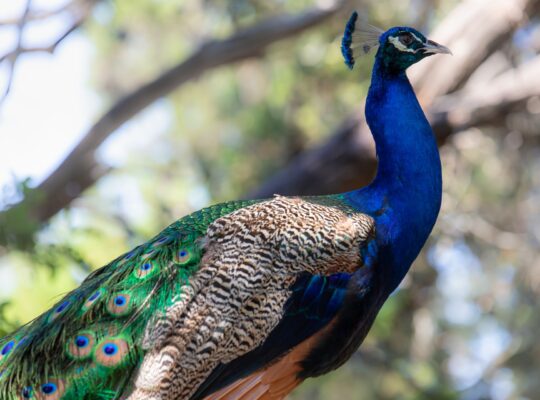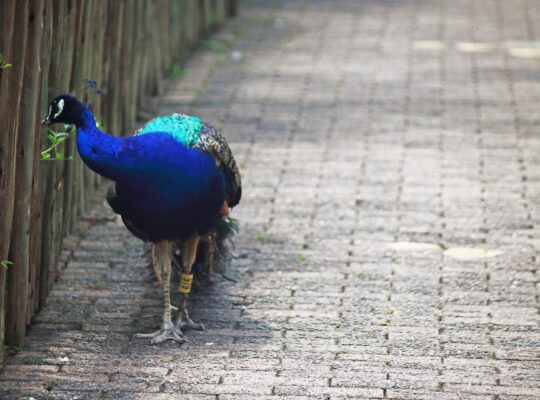Newborn peacocks, known as peachicks, have unique nutritional requirements for proper growth and development. Their diet mainly comprises protein-rich meals to encourage muscle and feather growth. Here’s a comprehensive look at what baby peacocks consume.
1. Newborn peacocks need a high-protein, nutrient-dense beginning meal with at least 20% protein. Starting feed is designed for newborn birds and provides essential amino acids, vitamins, and minerals. Choosing a high-quality beginning feed that fits the nutritional requirements of newborn peacocks is critical.
2. Insects: Since insects are abundant in protein and essential for the growth and development of feathers, baby peacocks need a supply of live insects in their diet. Crickets, mealworms, and tiny worms are common invertebrates eaten by newborn peacocks. To increase their nutritional worth, insects should be fed in tiny doses and gut-loaded with healthy meals.
3. Greens: Fresh greens are beneficial to baby peacocks’ diets as well. Greens such as spinach, kale, and lettuce are abundant in vitamins and minerals necessary for proper growth and development. Greens may be served chopped or whole, depending on the size of the chick.
4. Water is essential for the growth and development of young peacocks. Fresh, clean water should be provided at all times. Baby peacocks may prefer shallow water dishes or little waterers with easy access.
5. Grit: Newborn peacocks need grit in their food as well. Grit is composed of tiny, hard particles similar to sand or small pebbles that aid in grinding food in the bird’s gizzard. This promotes better digestion and nutrition absorption. Grit should be served in a separate dish since newborn peacocks may be unable to tell it apart from food.
Baby peacocks should not be given adult poultry feed or scratch grains since these diets are not nutritionally balanced for developing chicks. It is also critical to avoid feeding young peacocks meals heavy in salt or sugar since these might harm their health.
To ensure healthy growth and development, newborn peacocks need a high-protein, nutrient-dense beginning feed, live insects, fresh greens, water, and grit in their diet. It is critical to choose high-quality meals that satisfy their individual nutritional demands while avoiding giving them items that are inappropriate for their age and size.
What Should I Feed Peachicks?
Baby peacocks need a special diet to grow and develop appropriately. During their first few weeks of life, they should be given a high-quality starter feed with a balanced combination of protein, vitamins, and minerals. It might be a conventional game bird or poultry starting feed or a specifically made peafowl starter feed.
It is critical to always supply lots of fresh, clean water to peachicks. They should have access to watering cans that are small enough to grasp and drink from readily. Peachicks may be fed tiny quantities of fresh greens such as chopped lettuce, kale, or spinach in addition to their initial diet and water.
Peachicks’ diet may be progressively altered to include more protein-rich meals such as boiled eggs, mealworms, or crickets as they grow and acquired adult feathers. It is critical to avoid giving kids high-fat or high-sugar meals since this may lead to obesity and other health issues.
In conclusion, baby peacocks should be given a high-quality starting feed with a balanced nutritional mix, fresh water, and occasional meals of fresh greens. As they age, their diet may be modified to include more protein-rich items such as boiled eggs or insects. It is critical to avoid giving them high-fat or high-sugar items and always supply them with fresh, clean water.
Can Peachicks Eat Chick Starters?
Yes, peachicks may consume chick starter feed since it is designed to offer the nutrition needed for developing poultry. But, choosing a high-quality chick starter that provides a balanced blend of protein, vitamins, and minerals designed exclusively for poultry is essential.
Although chick starting is typically appropriate for peachicks, it may not provide all the nutrients they need for healthy growth and development. As a result, it is advised that they supplement their diet with extra protein-rich foods such as boiled eggs or mealworms, as well as fresh greens.
Since chick starter feed provides a more significant amount of protein than adult chicken feed, it should only be offered to peachicks and other young birds. Giving adult chicken feed to peachicks might cause growth and other health concerns.
Peachicks may consume chick starter feed as long as it is a high-quality feed designed exclusively for poultry. Yet, it is critical to supplement their diet with extra protein-rich meals and fresh greens to maintain proper growth and development. Adult chicken feed should not be provided to peachicks since it might cause health problems.
What Do Day Old Peachicks Eat?
Day-old peachicks need a high-protein diet to sustain their fast growth and development. Preferably, they should be given a specialist beginning diet designed exclusively for young fowl, such as chick starter feed.
Offering a steady supply of fresh, clean water while feeding day-old peachicks is critical. It is advisable to use little waterers that are shallow enough for the peachicks to reach without drowning. The water should be changed regularly to avoid contamination and provide clean drinking water to the peachicks.
In addition to chick starter feed, day-old peachicks may be fed protein supplements such as boiled eggs or mealworms. These protein-rich snacks should be provided sparingly since too much protein may harm young birds.
It is critical to regularly watch the peachicks’ eating habits and change their food as required to maintain optimum growth and development. Overfeeding may result in obesity and other health difficulties, while underfeeding can result in stunted growth and developmental disorders.
In conclusion, day-old peachicks should be given a specialized beginning feed that is strong in protein and designed exclusively for young birds. Baby peacocks should also have access to safe drinking water and, in moderation, protein supplements. It is essential to closely monitor their food habits to promote optimum growth and development.

